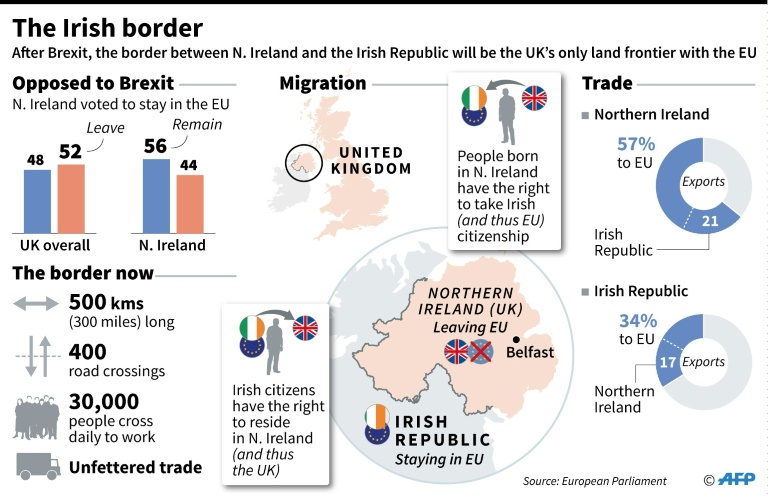Daily Lotto results: Thursday, 3 April 2025
Arlene Foster, leader of the Democratic Unionist Party (DUP) in the British-ruled province, said EU negotiator Michel Barnier had been “receptive” during a “very open and constructive” meeting in Brussels.
But she said the pro-British DUP could not accept an EU draft divorce treaty unveiled last week, which says Northern Ireland must stay in a customs union with the rest of the bloc if no better way is found to avoid a hard border with EU-member Ireland.
“We feel that the current draft EU legal text is not a faithful or fair translation” of a preliminary withdrawal deal reached by Britain and the EU in December, Foster told a news conference in Brussels.
Foster, the former first minister in Northern Ireland’s currently suspended power-sharing government, added that the EU had proposed a document that “we found unacceptable and the government finds unacceptable”.

Some Brexit facts about the border between British-ruled Northern Ireland and EU-member Ireland
Barnier said on Twitter after the talks that the EU was “looking for practical solutions to avoiding a hard border, in full respect of the constitutional status of NI (Northern Ireland), as set out in the GFA (Good Friday agreement).”
The 1998 Good Friday peace accords ended three decades of sectarian conflict between Protestants and Catholics that left 3,500 people dead in Northern Ireland.
The DUP brought talks on the Brexit divorce deal to the brink of collapse in December by holding out until the EU promised that there would be no new internal customs border between Northern Ireland and the rest of the United Kingdom.
But the EU’s draft text drops that assurance, focusing instead on the need for a “backstop” option that would effectively keep Northern Ireland in the customs union to avoid border checks after Brexit in March 2019.
Foster urged May to come up with a British version of the draft providing “sensible” and “imaginative” solutions, noting that most of Northern Ireland’s trade is with the rest of the UK.
DUP deputy leader Nigel Dodds meanwhile warned Irish Prime Minister Leo Varadkar against taking an “aggressive” stance in the talks, saying that Ireland would suffer most if there was no Brexit deal.
Download our app